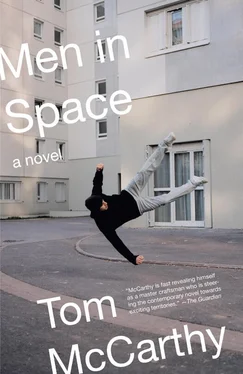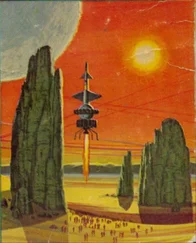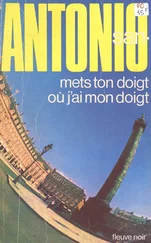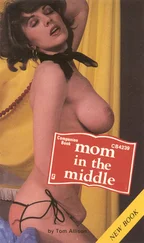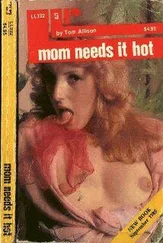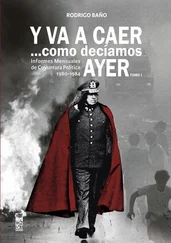“Constantine! What …”
Ilievski raises his hand — and then seems not to know what to do with it. He moves it first towards his own mouth, as though he wanted to signal for Anton to stop talking; then he moves it out towards Anton’s shoulder, as though he wanted to pat or clasp it. But it’s barely cleared the space above the handbrake when he draws it back towards himself again. It’s shaking. Something drops onto the leather of his seat, a tiny drop of … is that a tear ?
“Constantine! What on …”
But he’s opened the door, spun out of the car and walked away, and Mila’s pulled off again, before he can even … Anton looks through the rear window at Ili’s back, his brown coat and grey hair shrinking against a billowing sea of white chrysanthemums, retreating down a corridor of other shopfronts, motorbike shops, tobacconists, textile shops, a bath-and-shower centre, posters lining the road on each side …
“What’s wrong with him?” Anton’s voice is squeaky with sheer disbelief. Did he just see a, yes, a tear splatter the leather?
“He’s preoccupied,” says Jana, still looking away.
“ Preoccupied ? He looked absolutely … I don’t know. Devastated. About something or other.”
“He’s got the flu. I think we’re all coming down too. Better watch out.”
They’re on the same steep uphill road, but its name’s changed now, to Bělohorská. Means “white mountain”, like the one the saint was floating above in the painting. There’s a motorcyclist chugging along beside them wearing a scarf and goggles, like some early aviator. They pull up at some lights. Anton leans back and knocks his shoulders against Koulin’s and Janachkov’s. He leans forwards again and says to Milachkov:
“Shouldn’t one of us move into the front?”
“We’re almost there now.”
The light turns green. That sliding, then the bump again. They’re really out of town now, passing villas with dogs lounging in the gardens. They’ll have one like that, he and Helena, when he retires. He’ll sit there on the porch watching Kristof and Larissa and their own, his own two children playing football: Bulgaria against America, although they’ll all want to be America of course. The last villa on the hill is a shop selling giant satellite antennae that look designed more for air-traffic control than for television viewing — maybe even mission ground control. Past this villa it’s shrubby woodland, bushes, rocks and grass. Then the ground evens out into a plain. Must be the highest point around Prague: top of the white mountain. Milachkov turns right into a lay-by just beside where the tram rails that have accompanied them all the way up from the Summer Palace cut an elongated loop into the ground. The twenty-two they raced with earlier is sliding into this right now, stopping, its driver climbing out to buy a káva or a pivo from this little stand …
“OK, then.”
Mila, Koulin and Jana have all thrown their doors open as though they couldn’t get out of the car fast enough — as though somebody had farted, or they’d been carrying meat long past its sell-by date. Anton steps out too, stretches his legs, looks up. The sky’s overcast but bright. The hidden sun’s making a patch of cloud glow brighter — a sphere that seems to buzz or hum: what’s making that … It’s an aeroplane, circling above the plain: must be held in a queue, waiting to land, in which case why’s it smaller than the raven it’s just passed beneath? Is this some kind of optical illusion only Kepler or Toitov would understand? It’s turning now, outlined against some trees that rise behind a wall on the plain’s far side. What on … Now he sees them, standing on the grass: two kids holding a radio controller with a pointy aerial, guiding their model’s twists and loops. The other three are leading him towards the wall. It’s a long, white wall that runs right across the plain’s perimeter, enclosing the trees behind it. Anton says:
“We’re meeting him in here?”
“Who?” Janachkov asks, still looking away.
“This Greek guy.”
“Of course!” Koulin starts bouncing as he walks. “By Hvězda. The hunting lodge.”
“Hvězda? Doesn’t that mean star?”
No answer. It does, though. He remembers learning it: hvězda , fem. noun, type 1; hvězda, hvězdu, hvězdě, hvězdy … Star. Are they that high up? They’ve reached the wall now, and are about to pass through a small door in it when Milachkov stops, tssks and announces:
“I’ve forgotten the thing in the car!”
Koulin and Janachkov nod gravely. Anton asks:
“What thing?”
“Oh, the … thing. The, you know, the records of our past dealings with this Greek guy. I’ll just … I’ll catch you up.” He turns round and heads back beneath the circling toy plane towards the car. Anton, flanked by Koulin and Janachkov, passes through the door in the white wall.
Inside, a long, broad avenue cuts through the woods. It has a really classical perspective: evenly spaced benches punctuate his eye’s passage down the avenue’s sides, shrinking as the two lines converge towards their own resolution at infinity, their vanishing point — a point not quite reached due to the presence, in a circular clearing perhaps half a kilometre away, of a large white building.
“Oh! What’s that?” Anton’s never been here before.
“Hvězda. The hunting lodge,” Jana informs him, his eyes scouring the woods on either side.
“Is that where we’re …”
“Near there. In the woods.”
Small footpaths lead into these woods, splitting and criss-crossing as they cut through a web of birch trees, sycamore trees and giant evergreens. Some of the trees have markings on them, little red or white lines: must be for guiding walkers around — although it seems to Anton that the trees are so thickly packed you’d need a ball of string to find your way back out again, like Helena’s guy in his Greek labyrinth. Or was it Minoan? Greek guy in a Minoan …
“Hey, what’s this man’s name?”
“Well, it’s Jerémiah.”
“Jerémiah? What sort of a Greek name is that?”
Janachkov shrugs. “He’s sort of Greek, but not completely. He’s Greek originally, but he’s from all over the place.”
Two more kids run out of the woods, shooting at each other with cap guns, and race past them, heading for where they’ve come from, to the door in the wall. Anton bought Kristof a gun like theirs once, but Helena disapproved and took it away again. They’re perhaps two hundred, two hundred and fifty metres from the white building now. It’s strangely shaped, neither round nor square but kind of jutty: its walls head in, then out, then in again. Beneath a grey slate roof that seems to fold and crumple, irregularly positioned windows peep from between red-and-white shutters, as though monitoring their approach. Ten metres further, and the building’s surfaces fall into place. The walls jut in and out to form a kind of pentagon, a star shape. Of course. Hvězda : star. The hunting lodge is star-shaped: named after one, built like one. Anton stops walking, turns round and lets his gaze run back along the avenue they’ve been shuffling up like worshippers up an aisle towards an altar. It’s a surveyor’s dream, straight and orthogonal — as though the building, like a real star, exercised such an intense and overpowering force that all space around it fell into shape in concordance with the lines and vectors of its field, its pull. Even the tiny footpaths through the woods, for all their splitting and gyrating, lead to the building: he’s sure of this, sure that the red and white marks on the trees are daubed on in the same phosphorous mixture as the shutters’ red and white and are orbiting the latter, like a belt of tiny asteroids. Mila’s being drawn back towards the building too: Anton can see his diminutive figure re-entering the area enclosed by the white wall, through the doorway that looks like the doorway to some kind of mausoleum, heading up the avenue towards them, towards it. He’s carrying a large object: looks a bit like a surveyor’s pole although Anton knows he’s only thinking this because of the perspective and the straightness, the converging … He turns back towards the star and starts walking again.
Читать дальше
